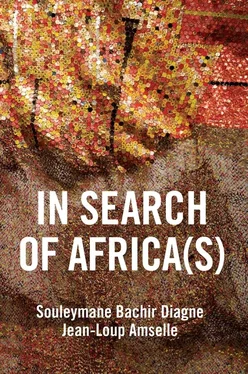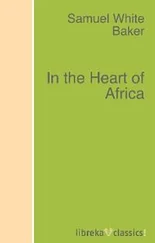Unfortunately, criticism of the unilateral imposition of human rights, of this overbearing Western universalism in all its aspects, often has the harmful effect – now as before, during the colonial period – of concealing the need to defend another type of universalism whose importance is obvious in the face of the excesses of cultural relativism associated with the denigration of reason, or what is now called decolonial ‘pluriversalism’. 8True, universalism must be rejected to the extent that it is only a Eurocentrism, and therefore a ‘particular’ opposing other ‘particulars’ seeking recognition. This does not, however, mean forgoing the quest for a unity of the different manifestations of capitalism on different continents or the search for potential communication and translation between different cultures.
To begin with, let us introduce the postcolonial thinkers Partha Chatterjee, Dipesh Chakrabarty and Gayatri Chakravorty Spivak, whose theories are often based on culturalist premises which emphasize the irreducible specificity of different countries or subcontinents such as China or India. As I endeavoured to show in my book L’Occident décroché , Indian historians of the ‘subalternist’ school who initially based their analyses of popular resistance on the ideas of Antonio Gramsci later resorted to other authors such as Michel Foucault and Louis Dumont, thereby giving an essentialist and culturalist flavour to their apprehension of Indian social realities. 9Those who oppose this culturalist vision and claim to have discovered a redefined universalism are more discrete: they come from the same Southern countries, but they also teach in the United States. Here I will mention the Indian Marxist thinker Vivek Chibber, professor at New York University. A defender of universalism, he insists that the manifestations of capitalism are basically the same in the East as in the West, in India, Europe and the United States. 10In a similar way, Nivedita Majumdar showed that the almost exclusive focus on gender at work in the writings of Ranajit Guha, Gayatri Chakravorty Spivak and Homi Bhabha had the effect of masking the forms of acquiescence to the tradition that are in some cases demonstrated by so-called ‘subaltern’ women, or of obscuring their class consciousness. 11
The American-Ghanaian philosopher Kwame Anthony Appiah, meanwhile, uses other data – basically, cultural data – and has a different theoretical slant, but he too is just as committed, within the context of what he defines as a ‘cosmopolitanism’, to seeking values shared by many cultures. My own concept of universalism is close to his theoretical model. 12
Another American-Ghanaian philosopher, Kwasi Wiredu, is also clearly hostile to cultural relativism: he defends a universalist position based on the biological unity of the human species. For him, there is nothing impossible in the idea of translating Western concepts into African cultures (in this case, Akan) 13or African concepts into European languages, even though this latter transference is less common than the former. In this respect, he rejects the Sapir–Whorf hypothesis, whose strong version, ‘linguistic determinism’, postulates that human actions are necessarily limited by the language in which they are expressed. He is also hostile to the idea of the ‘indeterminacy of translation’ put forward by the philosopher Willard Van Orman Quine, for whom to understand a sentence is to understand a language. In both cases, Wiredu believes, the powerful influence of language on thought cannot legitimize any relativism. 14
Souleymane Bachir Diagne goes even further. 15Indeed, he has developed a theory of the universalism of translation whose major sources of inspiration are Maurice Merleau-Ponty’s reading of Lévi-Strauss, and the work of Emmanuel Levinas.
In the report he presented in 1958 to his colleagues with the aim of setting up a Chair in Social Anthropology for Lévi-Strauss at the Collège de France, Merleau-Ponty distinguished two kinds of universalism: overarching universalism and lateral universalism. 16By ‘overarching universalism’, Merleau-Ponty means the elementary, unconscious structures that Lévi-Strauss detected in kinship, with a focus on the universality of the nature/culture distinction and of the prohibition of incest. 17To this formalistic mathematics of ‘atoms of kinship’ – a mathematics that is perfectly inhuman, being attached to no given society or culture – Merleau-Ponty opposes a ‘lateral universalism’, based on the concreteness and richness of the society or culture that is the subject of the work of the ‘ethnographer’, a term which has in fact been largely abandoned by contemporary anthropology. As Merleau-Ponty puts it:
It’s about building a general reference system where the point of view of the native, the point of view of the civilized person, and the errors made by one about the other can find their place; it’s about constituting a broadened experience which may in principle become accessible to people of another country and another time. 18
In this case, it is not a matter of applying a mathematical or logical apparatus on unconscious social actors from above, as a grammar is imposed on speakers, thereby flattening out all differences; rather, the aim is to establish an empirical communication between radically distinct cultural spheres. However, for Merleau-Ponty, this process of communication goes further, since he maintains that anthropologists must not only apprehend exotic societies, but also free themselves from the force field of their own society so as to see their own culture as if it were another, rather like Montesquieu, who, in The Persian Letters , looks at French society from the outside, or like François Jullien, who uses Chinese culture to apprehend his own (French) culture.
It is thus a kind of intercultural friction that Merleau-Ponty is proposing, a friction which should also allow Western anthropologists to find the ‘savage side’ within them – the ‘savage mind’ (Lévi-Strauss) which does not belong to so-called ‘primitive’ societies alone, but is common to all societies. 19Interculturalism, or the translation of cultures into one other, is thus for Merleau-Ponty a source of knowledge for human beings in general.
One striking contradiction, however, deserves to be noted. Merleau-Ponty bases his theory on the existence of discrete cultures in the mathematical sense of the term ‘discrete’, that is, discontinuous. To conceptualize translation, or interculturalism, he needs a concept of the discontinuous, just as the thinkers of hybridity need to base their arguments on the hypothesis of supposedly ‘pure’ cultures.
But there is another problem. Merleau-Ponty’s position with regard to what might be called exotic otherness or the ‘oblique universal’, which he locates exclusively in India and China (the only civilizations he knows – and even then it is through their philosophical ideas alone), is not without its ambiguity, as is evident from his discussions of this topic in Signs , 20a work that was published in 1960, at around the same time as a report supporting Lévi-Strauss’s candidacy for a chair at the Collège de France. Merleau-Ponty follows an evolutionist tradition leading from Hegel to Husserl, and sees Indian and Chinese thought as a kind of unfinished ‘prematuration’ of Western thought, which, in his view, is alone capable of reaching universality. But, at the same time, he echoes Léopold Sédar Senghor 21and looks forward to Michel Foucault 22in the way he views this ‘prematuration’ as simultaneously a source of primitivism capable of regenerating a Western thinking based solely on the development of (frigid) reason, and thus able to ‘learn from them [these non-European cultures] to rediscover the relationship to being’. 23It is surprising, in this respect, that Diagne did not view Merleau-Ponty as a postcolonial author avant la lettre .
Читать дальше












